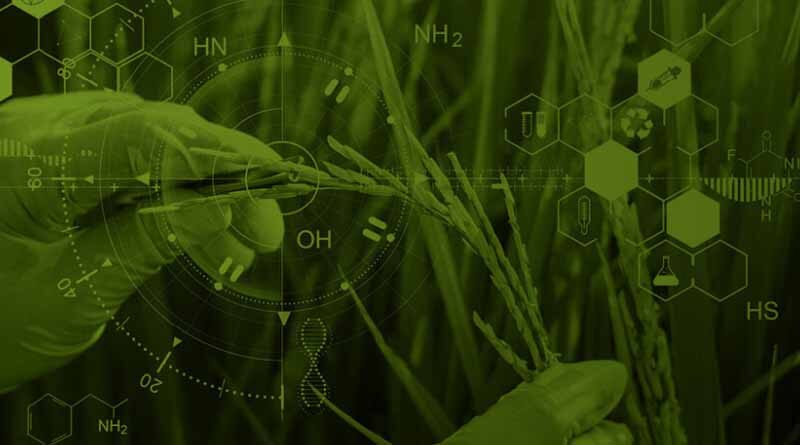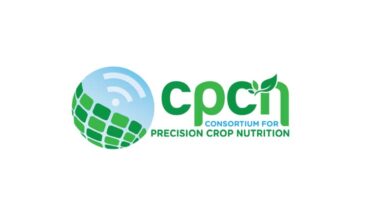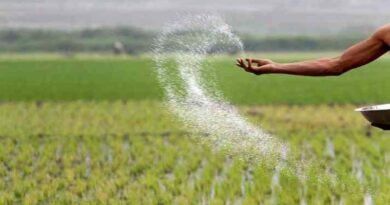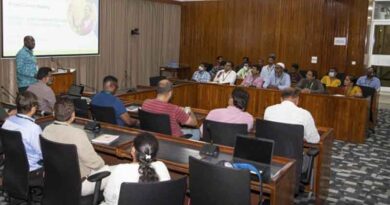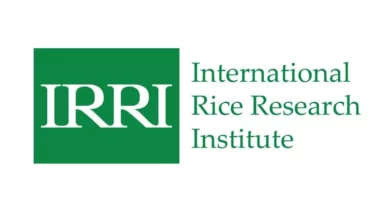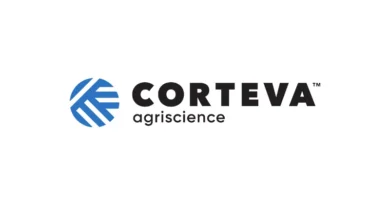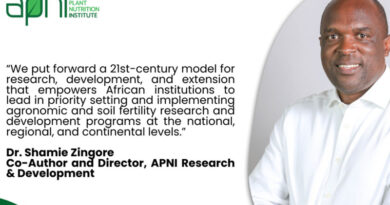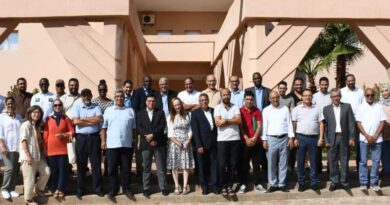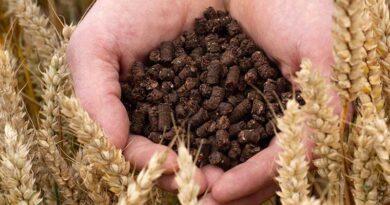APNI Teams Up with Agricultural Research Leaders Worldwide to Launch Landmark Open Data Crop Nutrition Platform
25 August 2022, Africa: Marking a major advance in improving crop nutrition and soil health worldwide, the Consortium for Precision Crop Nutrition (CPCN) and Agmatix today launched a unique global platform designed to drive international research collaboration and expand open access to crop nutrient data to farmers, their advisers and policy makers.
The online platform, powered by the Agmatix Insights solution and spearheaded by CPCN in collaboration with several leading research institutes, enables open access to essential crop nutrient concentrations data.
The platform, which comprises two active databases, serves as a critical open data resource for agricultural researchers and professionals who conduct field trials on soil fertility and crop nutrition.
Developed in partnership with the International Fertilizer Association (IFA) and Wageningen University & Research (WUR), the first of the two databases looks at production and environmental factors affecting nutrient concentrations to determine the total amount of nutrients removed from the field in the harvested portion of the crop. This provides agronomists and farm advisors with the information needed to improve their plant nutrition plans, delivering key efficiencies and critical yield increases. Focused initially on nutritionally and industrially important crops, such as maize, wheat, rice and soybean, the Global Crop Nutrient Removal Database includes data on nutrient content, residues, crop yields and other associated data.
The second resource, The Nutrient Omission Trial Database, is focused on crop nutrient requirements. Created in collaboration with the IFA, the African Plant Nutrition Institute (APNI), and Innovative Solutions for Decision Agriculture, this database includes data from researchers and institutes around the globe. It aims to support site-specific recommendations on optimizing nutrient management by enabling researchers to compare crop nutrient requirements and plans.
“Being part of this project enables us to develop and disseminate evidence-based and sustainable crop nutrient management solutions in response to the changing climatic and weather conditions faced by farmers across Africa.” – Dr. Pauline Chivenge, APNI Principal Scientist, and CPCN Coordinator.
To read more about the project, collaborations and how the databases can be used, please visit the microsite at http://cropnutrientdata.net.
For more about information about the CPCN visit https://precisioncropnutrition.net
COORDINATING PARTNERS
The following partners coordinated the contribution of crop nutrient concentrations research data from across the globe.
The African Plant Nutrition Institute (APNI) is a not-for-profit research and development organization founded in 2019 and based in Benguérir, Morocco. Their mission is to enable African farmers to sustainably manage crop nutrition for a resilient and food-secure Africa.
The Consortium for Precision Crop Nutrition (CPCN) was established by the African Plant Nutrition Institute (APNI) in 2020 to co-create common data, standards and resources that enable its members to develop, validate and disseminate their own customized nutrient management solutions.
Wageningen University & Research (WUR) is a public university in Wageningen, Netherlands, specializing in technical and engineering subjects, life science and is widely regarded as the world’s top agricultural research institution.
The International Fertilizer Association (IFA) promotes the efficient and responsible production, distribution and use of plant nutrients. This mission plays a critical role in helping to feed the world sustainably. Members include fertilizer producers, traders and distributors, service providers, research organizations, agtech start-ups and non-governmental organizations
Innovative Solutions for Decision Agriculture (iSDA) helps smallholder farmers across Africa increase their productivity using advanced technologies while also improving their profitability and well-being of their communities.
Agmatix is the world’s first single engine that drives the agronomic innovation cycle from research and experimental data into meaningful insights. The Agmatix platform can read and interpret thousands of the different data points commonly used across the agricultural industry to help scientists, agronomists and farmers make actionable decisions.
Also Read: Punjab government bans 10 agrochemicals to save basmati rice exports
(For Latest Agriculture News & Updates, follow Krishak Jagat on Google News)

